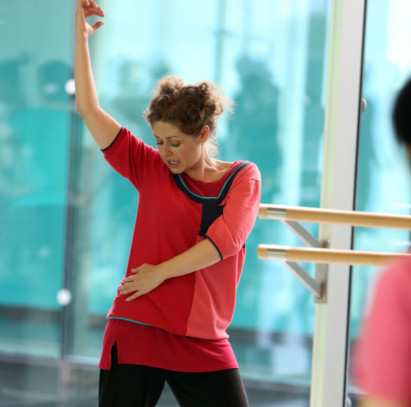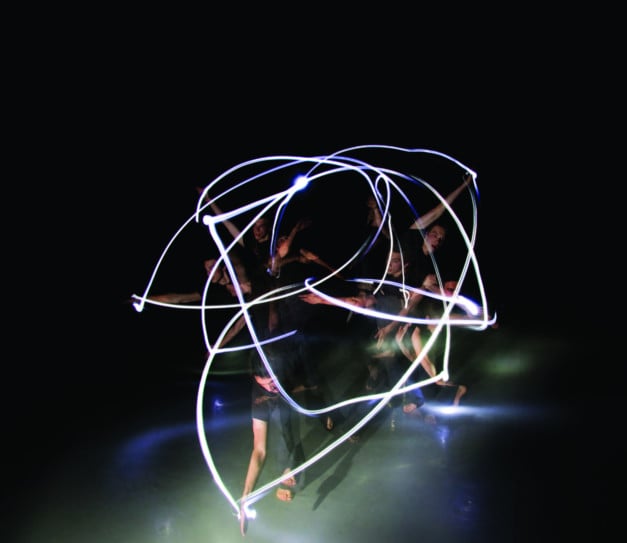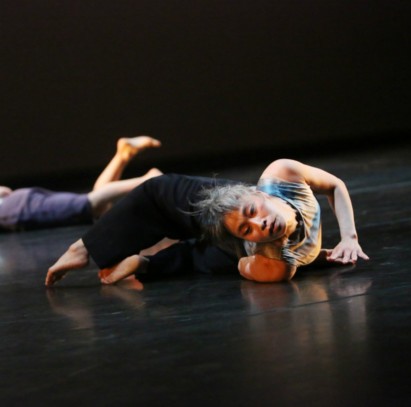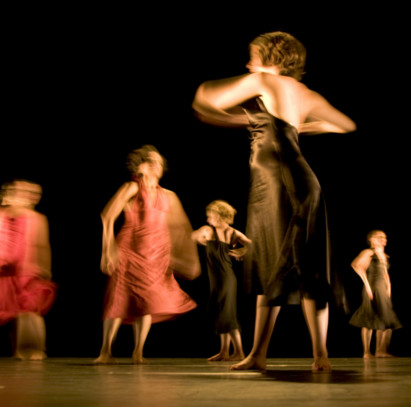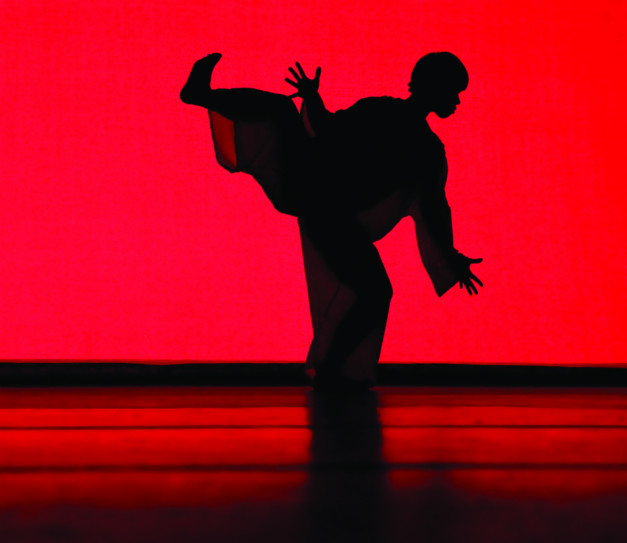Introduction
The Specialist Diploma: Choreological Studies is a vocational programme essential for movement practitioners, clinicians, scientists and educators working with movement in all its forms. It is the only programme of its kind in the world providing specialist study in the area of Choreological Studies with a focus on contemporary developments of Rudolf Laban’s praxis.
Key Features
- You will be taught by a team of expert choreologists who are leaders in their field, with diverse interests, experience and expertise
- Learn in an environment of intellectual inquiry, movement exploration, creative experimentation and analysis
- Engage in intensive studio-based practice and interrogation of Rudolf Laban’s movement theories and contemporary developments of these
- Explore the relevance of these principles in relation to your own practice, whatever your field
- Refine your movement observation skills and develop your movement literacy and communications skills
- Develop your understanding of physical articulation and performance skills
Throughout the programme you will develop:
- embodied understanding of how movement works
- analytical and documentation skills for observational accuracy
- specific terminology to describe and articulate what movement does, its purpose, how it functions, its expressivity and its creative potential.
Join us in our award winning building specifically designed for movement investigation, with superb library and technology facilities.
As an analytical tool for observing, creating, performing and directing performance, choreological studies enables our students to evaluate their practice. It provides them with the means to develop and enhance their practice as well as facilitating integration of theory and practice as studio-based scholarship.
Alison Curtis-Jones
Lead Tutor Specialist Diploma Choreological Studies
Course Details
The programme runs over 3 years and is structured into 3 modules (1 per year), each focused on distinct areas that accumulates in assessment. Each module follows the same pattern of delivery:
- 5 Day intensives of studio practice and delivery: October
- 5 Day intensives of studio practice and delivery: February
- 5 Days for tutorials and practical assessments: July
Each module of study will culminate with assessed assignments before the commencement of the next module. This pattern of study over three years allows you to enter the course in any one year of the three-year cycle.
Modules
The 3 modules are delivered in the same order. On entering the programme students will start with which ever module is running that year.
The Dynamic Body in Motion (2022)
The module includes practical and theoretical exploration of Laban’s dynamic theories as they are embodied in human movement. Rhythm and dynamics are essential in expressive and functional movement. Explorations include embodying, recognising, naming, and documenting dynamic and rhythmic variations in movement. The amount of effort used is identified through experiencing and closely observing alternation of tension and release for movement expressivity. Relevant for dancers, artists, theatre directors, sports scientists, architects, nurses.
Relatedness in Motion (2023)
The module includes practical and theoretical exploration of intra and inter-personal relationships as they are embodied in human movement, behaviour, theatre practice, sports. Examining how one body part relates to another, how we relate to others and the environment, this module reveals the significance of our relationship to our-selves, each other, and the world around us.
Living Architecture (2024)
The module includes exploration of Laban’s theories of space harmony, (Choreutics), and how the principles are embodied in human movement. Understanding the hidden rules of space and how we engage with space and make it visible through our interactions, behaviour, and creative choices. This module provides skills for conscious decision making by directors, actors, dancers, artists, as well as in-depth rigorous spatial analysis for dance/sports scientists, clinicians, nurses.
I joined the SDCS programme with a view to learning and embodying movement practice from a trans-disciplinary perspective. I have found the lectures and workshops to be inspiring and relevant, are presented by teachers who are genuinely passionate about Choreology, along with creative demonstrations by visiting artists from various fields of dance and movement. From my point of view this has provided an excellent environment for bringing art and science together. The teachers are kind, professional, supportive of the interests of each individual student, and encourage each of us to develop and apply the principles of Choreology to the nature of our own practice.
Chris Lord
Student
Teaching and Learning
Contact Hours
Each module includes 61.5 hours made up of two intensive weeks of 5 days of 6 hours/day and 1.5 hours of tutorials per module. Students are expected to engage in a further 233 hours of study including self-directed study and preparation for assessment
How will I learn?
- Intensive weeks of studio-based delivery and study as a cohort.
- The week includes practical workshops and lectures.
- Participants are expected to pursue their own lines of enquiry through personal independent practice and research.
- Tutorial support leading up to assessment tasks. Tutorials are offered in a range or forums, face to face or online.
- Blended learning – Students have the opportunity to engage with each other throughout the year via an online forum.
How will I be assessed?
Assessment is in three parts per module to evaluate knowledge, skills, values and application. Each module has the three assessments listed below as the culmination of each year of the programme.
- Written Document: evidences your reflective and critical thinking in relation to your theoretical research and wider reading.
- Embodiment and Symbology: evidences your application of the theories to the creation of movement and to your own bodily execution.
- Lecture demonstration: evidences your individual application of the theories to a particular area of interest and practice alongside your communication skills.
The specialist diploma in choreological studies changes you. By digging into the core concepts of Laban and choreologcal theories, practitioners are gifted with exceptional analytical skills for moving, observing, and describing movement. Throughout the three years, the programme offers learning weeks to absorb and consolidate theorical aspects through embodied understanding, making the course inclusive and open to movement artists from different fields. SDCS is an exceptional personal journey lead by incredibly exceptional teachers. It is that kind of experience that never leaves you.
Rebecca Rosa
Student
Entry Requirements
- Automatic entry following completion of How Movement Works intensive week, available as part of the Trinity Laban Summer School
- or some prior knowledge of Laban Studies or Choreological Studies
- or a practice-based BA (Hons) in movement or dance studies with a movement analysis component
- or a Laban/Bartenieff Institute of Movement Studies (LIMS) qualification
- or equivalent professional experience
- or an interest in movement relating to a professional discipline
English Language requirements
IELTS Band 6 (General English Test) or above (or equivalents). Certificates will need to be provided in order for your application to be fully considered. If the panel feel that there is a lack of English Language proficiency or understanding of a subject area, then you may be asked to supply additional written material.
The choreological perspective has been a valuable framework to bridge my experiences of movement from various disciplines into a coherent and articulate pedagogical practice as a movement artist and yoga teacher. The SCDS programme has offered me space to analyse, dissect and articulate movement with a more refined sensibility to what I have intuitively been developing in my personal conduct of facilitating movement. Hugely rewarding programme and highly recommended.
David Kam
Student
Fees and Finance
Fees for 2023 entrants
Fees are reviewed annually and may increase by up to 5% each year. The following fees are confirmed.
| Mode of Study: Part-Time (3 years) | ALL STUDENTS |
|---|---|
| Year 1: 2023/24 | £2,800 |
Fees for 2022 entrants
Fees are reviewed annually and may increase by up to 5% each year. The following fees are confirmed.
| Mode of Study: Part-Time (3 years) | ALL STUDENTS |
|---|---|
| Year 1: 2022/23 | £2,690 |
You can also view our Current and Past Fees.
Payment can be made in instalments
Accommodation and Living Costs
This information can be found on our Costs of Living page.
Financial Support
Read about financial awards and external funding opportunities in the Fees and Finance section.
Key Facts
| Location | Laban Building |
|---|---|
| Duration | 3 years (part time) |
| Start Date | October 2024 |
Explore
Dance at Trinity Laban

